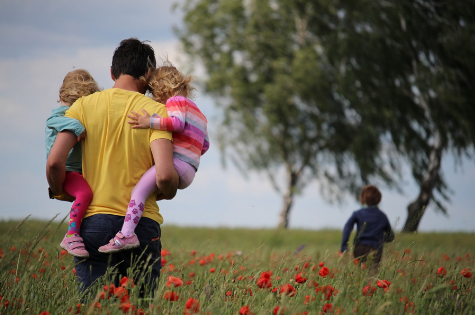Finding the delicate balance between protecting and helicopter parenting is not as easy as it seems. It is human nature to want to protect your offspring from any form of danger. After all, 33% of children who wander will require emergency medical attention, according to the national autism association. From the moment of conception, parents have taken great measures to ensure that their growing joy is well and healthy for its grand entrance into the world. These children won't be babies forever and need certain life skills to help them thrive. While there's no way to guarantee your child's safety, there are measures parents can take to alleviate some of this stress.
Allow Them to Fail
As tempting as it may be to do everything for your child, take a step back and allow them to deal with the problem. The best teacher has always been experience. They need to learn how things are done because they will eventually have to fend for themselves. If your kids make mistakes, don’t swoop in to save them right away. Let them figure things out on their own. They will seek help if they need it. While it is painful to see our children hurting, it will be more painful later down the line if they are incapable of handling difficult situations. They must also learn how to persevere and try to make things work the second time around. After all, allowing your children to stumble will make them more resilient.
Foster a Safe Space to Thrive
For younger children, creating a literal safe space in the form of gates along your stairs, rubberized mats, toilet seat locks, or a play yard, is critical to their growth and development. This includes putting on a toddler harness or placing color-coded shirts on your brood when you go out, so you can easily locate your children in a crowd. In fact, a recent study explored how electronic tracking devices have benefitted families and improving their overall quality of life. Not to mention, parents that feel a sense of anxiety during their child's first year of school and seek comfort in kid-friendly trackers that can be worn as a watch or in their bags. These safety measures will give your rambunctious wee ones the freedom to explore the world as a safe pace. They need to touch, feel, grab, and wiggle their way around to learn more about this new world around them.
Bear the Consequences of their Actions
During a child's early stages, telling them not to touch something because it is dangerous requires patience and continuation. During their middle stage, children are at a point where they want to test their limits. If they break your rules, giving them tough love and punishment is a necessity. You can opt to ground them for a week or take away their Wi-Fi privileges. If they do something bad in public, wait until you're in a private setting to discuss their poor actions. In fact, you can amp up their punishment with more chores, standards, or relinquish their privileges. Discipline can be tough, even for parents. But it is important to remember, the world is full of laws and regulations, and teaching your children consequences early on will prevent poor behavior later in life.
Resist the urge to fight your child's battles for them as this will become a great disservice to your kids. As parents, we will not be around 24/7 throughout their lives. So, you must allow your children the opportunity to build independence and face the tough world on their own. Knowing that you trust and love them will give them the confidence they need to do what is right, even when you're not around.








 Agree (0)
Agree (0) Disagree (
Disagree (









__small.png)










